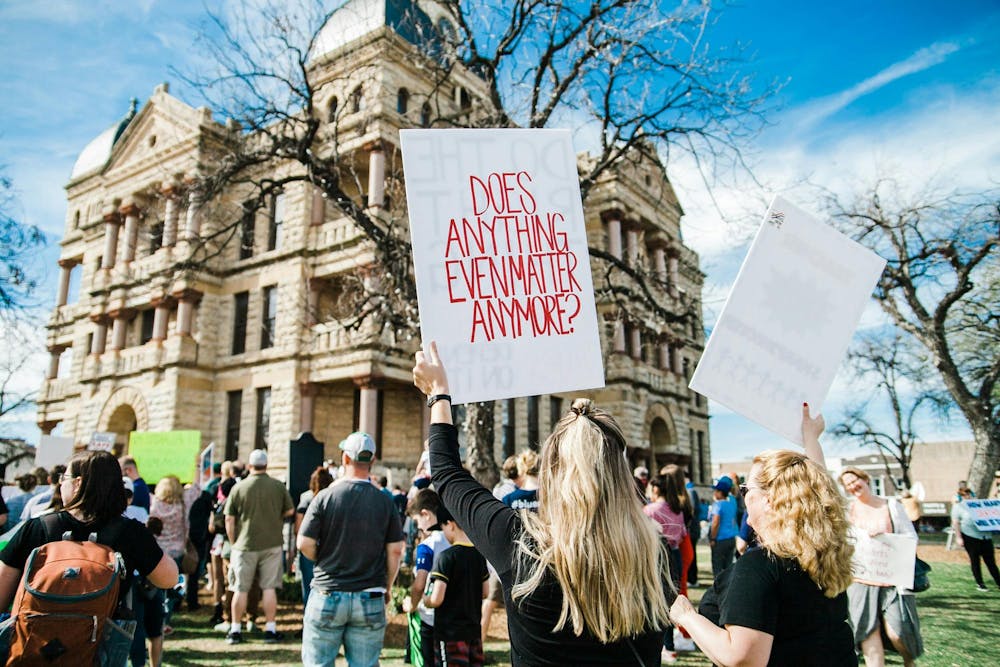There’s a lot of commotion about the question, “What do we owe each other?” The university has a forum dedicated to this question, a forum that is situated within a three-day holiday for the second most important person on this campus behind Our Lord and Savior, Jesus Christ.
The Dowd Victory Fund paid several international leaders in global development, philanthropy and the future of technology. That is, our tuition paid billion-millionaires who have no interest in Catholic Social Teaching to come speak to us about their concerted efforts to live out Catholic Social Teaching through their work.
I have a valuable contribution to the dialogue about what we owe each other, the University and the world. Can hate make the world a better place? Can hate be a force for good? Should we all hate more? Yes. Yes. And yes.
Many of us, and by extension, much of the world suffers from apathetic ignorance — we choose to remain impartial or unknowledgeable because we do not care enough to pick a side or learn. It is the same disposition that fuels the wildfire of injustice and mass human rights violations, phenomena we probably should care about. We permit suffering, death, genocide simply because we do not care enough to do anything about it. But hate, fortunately, is a major part of the solution. It is something that anyone and everyone can and should do.
Let us say that your god, to whom you supposedly place great devotion, was profaned and blasphemed on a massive scale, perhaps an international scale. Surely, you would have a negative perspective, maybe even a strong sense of opposition. However, your sentiments would neither be negative nor strong enough to take action, so you do nothing and remain on the side of apathetic ignorance. Worse yet, you would probably accept a contrived excuse that the attack was, in fact, not at all offensive or directed toward your god, even though deep down you know that simply is not not true.
There are two dimensions here. The first is hate, which is to be understood as radical enmity against or repulsion from something. If you truly love something, then it follows that you should hate anything that opposes it. If you love the good, then you should hate evil. If you love the truth, then you should hate lies. If you love your god, then you should hate anything that opposes it. Hate is only suitable against ideas, concepts and actions that oppose that which you love; hate should never be directed toward a person, ever. Hate in this sense is ultimately a corollary to one’s love, that is, one’s profound conviction in desiring and willing the good of another thing or person. The second dimension is righteous anger, which informs the actions as a result of our enmity. Righteous anger stems from repulsion to injustice, not personal insult. It manifests rightly in actions like protests so long as they do not beget evil or more injustice. One cannot right an evil with evil.
In the case of your god being mocked, the two dimensions hold true. For one, if you truly cared or loved your god, you would take offense to anything that attacks or offends it. Moreover, your repulsion would manifest in something that would amount to a protest: a boycott, a stern letter of disapproval to those who brought about the offense or even physically standing outside with signs — anything to prove to yourself and to the world that you care.
Of course, this example is relevant only to a specific demographic or community of people, but the method behind hate holds true for every single person and every single organization of people. Hate is a metric of one’s integrity, in a way. If one truly identifies and believes in a cause, then they would not only bear strong feelings for it but also take action to defend it. If they do not exhibit these attributes, then I seriously question their allegiance or integrity with regard to their association. I firmly believe that the world would be a better place if people had more conviction in their personal beliefs such that they would feel strongly for them and also protect them. Of course, everyone has their own set of principles and beliefs as to what they think is right and best for themselves, and in that case, great! Live by them, passionately.
I take no sides, political or not, in this article. My argument serves all people in all capacities. Indeed, it is love that underpins all of what I have said. But that love must be fervent enough that we are willing and able to defend it. Love and hate for what you believe in. Hate like a champion today.
Jonah Tran is a junior at Notre Dame studying finance and classics. He prides himself on sarcasm and never surrendering. You can file complaints to Jonah by email at jtran5@nd.edu.










